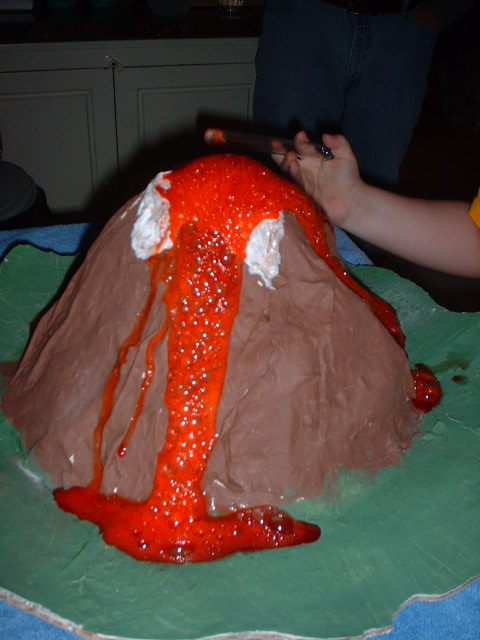Science fairs are becoming considered one of the best
learning experiences children can undertake. Conceptually, a science fair
project is very straightforward. A student chooses a scientific question he or
she would like to answer. Then the student conducts research in the library and
on the Internet on the question to give the student the background information
he or she needs to formulate a hypothesis and design an experiment. After
writing a report to summarize this research, the student performs the
experiment, draws his or her conclusions, and presents the results to teachers
and classmates. What makes a science fair project such a great learning
experience is that it involves so much more than science.
 Science fairs stimulate student
interest in science and provide students with opportunities for research and
active inquiry. Fairs give students the opportunity to publicly recognize other
students' completed projects and provide students with opportunities to share
their work. Learning some scientific facts or principles is a valuable benefit
for students doing the science fair projects, but the primary objective is to
teach students to think. Students participating in science fairs are doing more
than learning something new; they are using and extending knowledge gained
previously through other experiences. Science fair work plans help students
organize and review background information gained through previous library
research on topics of interest. Past experiences will also help students make
decisions on the importance of information to their topics.
Science fairs stimulate student
interest in science and provide students with opportunities for research and
active inquiry. Fairs give students the opportunity to publicly recognize other
students' completed projects and provide students with opportunities to share
their work. Learning some scientific facts or principles is a valuable benefit
for students doing the science fair projects, but the primary objective is to
teach students to think. Students participating in science fairs are doing more
than learning something new; they are using and extending knowledge gained
previously through other experiences. Science fair work plans help students
organize and review background information gained through previous library
research on topics of interest. Past experiences will also help students make
decisions on the importance of information to their topics.
Science fair projects provide
students the opportunity of learning more about topics of personal interest, while
also demonstrating both factual knowledge in written reports and procedural
knowledge through the research process itself. The more a student knows about a
topic, the easier it is to learn more about the topic. Together, prior
knowledge and newly acquired knowledge enable students to generate, analyze,
and assess the impact of their findings, as well as connect what they learn to
experiences beyond the science fair project.
 I participated in a science fair when I was in third grade. My topic of interest was volcanoes so I decided to create a model volcano as my experiment. The science fair was very important to me and thirteen years later I still remember it very vividly. I began by researching and going to Barnes and Noble with my dad to purchase many books all about volcanoes. I purchased books that were above my reading level, this introduced me to new vocabulary and terms. The project advanced my scientific knowledge about volcanoes but also gave me the opportunity to work on literacy skills while researching. I worked with both my parents as well as my teacher on the project. This allowed for parent-teacher contact and cooperative learning between the home and school. I had the opportunity to use my artistic talents to create a paper mache volcano. Through trial and error I found a way to make the volcano erupt.
I participated in a science fair when I was in third grade. My topic of interest was volcanoes so I decided to create a model volcano as my experiment. The science fair was very important to me and thirteen years later I still remember it very vividly. I began by researching and going to Barnes and Noble with my dad to purchase many books all about volcanoes. I purchased books that were above my reading level, this introduced me to new vocabulary and terms. The project advanced my scientific knowledge about volcanoes but also gave me the opportunity to work on literacy skills while researching. I worked with both my parents as well as my teacher on the project. This allowed for parent-teacher contact and cooperative learning between the home and school. I had the opportunity to use my artistic talents to create a paper mache volcano. Through trial and error I found a way to make the volcano erupt.
My experience in a science fair is one of my oldest memories pertaining to science. It was a wonderful experience and should be viewed as a unique learning opportunity. Students have an opportunity to go beyond the
planned science curriculum to pursue individual interests and talents, and to
examine practical problems with hands-on activities that link science with
other parts of the curriculum. Science fairs provide students with
opportunities to reflect and make sense of their total educational experience.
Check out this short video about the steps of preparing for a science fair!
No comments:
Post a Comment